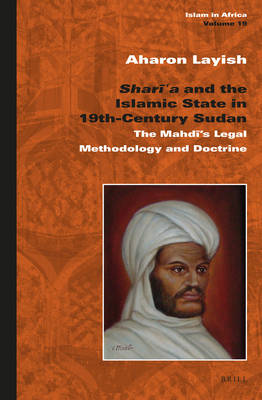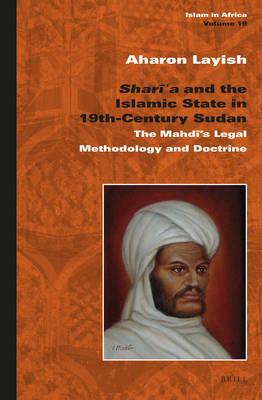
Je cadeautjes zeker op tijd in huis hebben voor de feestdagen? Kom langs in onze winkels en vind het perfecte geschenk!
- Afhalen na 1 uur in een winkel met voorraad
- Gratis thuislevering in België vanaf € 30
- Ruim aanbod met 7 miljoen producten
Je cadeautjes zeker op tijd in huis hebben voor de feestdagen? Kom langs in onze winkels en vind het perfecte geschenk!
- Afhalen na 1 uur in een winkel met voorraad
- Gratis thuislevering in België vanaf € 30
- Ruim aanbod met 7 miljoen producten
Zoeken
Sharīʿa and the Islamic State in 19th-Century Sudan
The Mahdī's Legal Methodology and Doctrine
Aharon Layish
€ 238,45
+ 476 punten
Omschrijving
The Sudanese Mahdī headed a millenarian, revivalist, reformist movement in Islam, strongly inspired by Salafī and Ṣūfī ideas, in late 19th century in an attempt to restore the Caliphate of the Prophet and "Righteous Caliphs" in Medina. As the "Successor of the Prophet", the Mahdī was conceived of as the political head of the Islamic state and its supreme religious authority. On the basis of his legal opinions, decisions, proclamations and "traditions" attributed to him, an attempt is made to reconstruct his legal methodology consisting of the Qurʾān, sunna, and inspiration (ilhām) derived from the Prophet and God, its origins, and its impact on Islamic legal doctrine, and to assess his "legislation" as an instrument to promote his political, social and moralistic agenda.
Specificaties
Betrokkenen
- Auteur(s):
- Uitgeverij:
Inhoud
- Aantal bladzijden:
- 370
- Taal:
- Engels
- Reeks:
- Reeksnummer:
- nr. 19
Eigenschappen
- Productcode (EAN):
- 9789004311381
- Verschijningsdatum:
- 8/09/2016
- Uitvoering:
- Hardcover
- Formaat:
- Genaaid
- Afmetingen:
- 155 mm x 236 mm
- Gewicht:
- 635 g

Alleen bij Standaard Boekhandel
+ 476 punten op je klantenkaart van Standaard Boekhandel
Beoordelingen
We publiceren alleen reviews die voldoen aan de voorwaarden voor reviews. Bekijk onze voorwaarden voor reviews.









